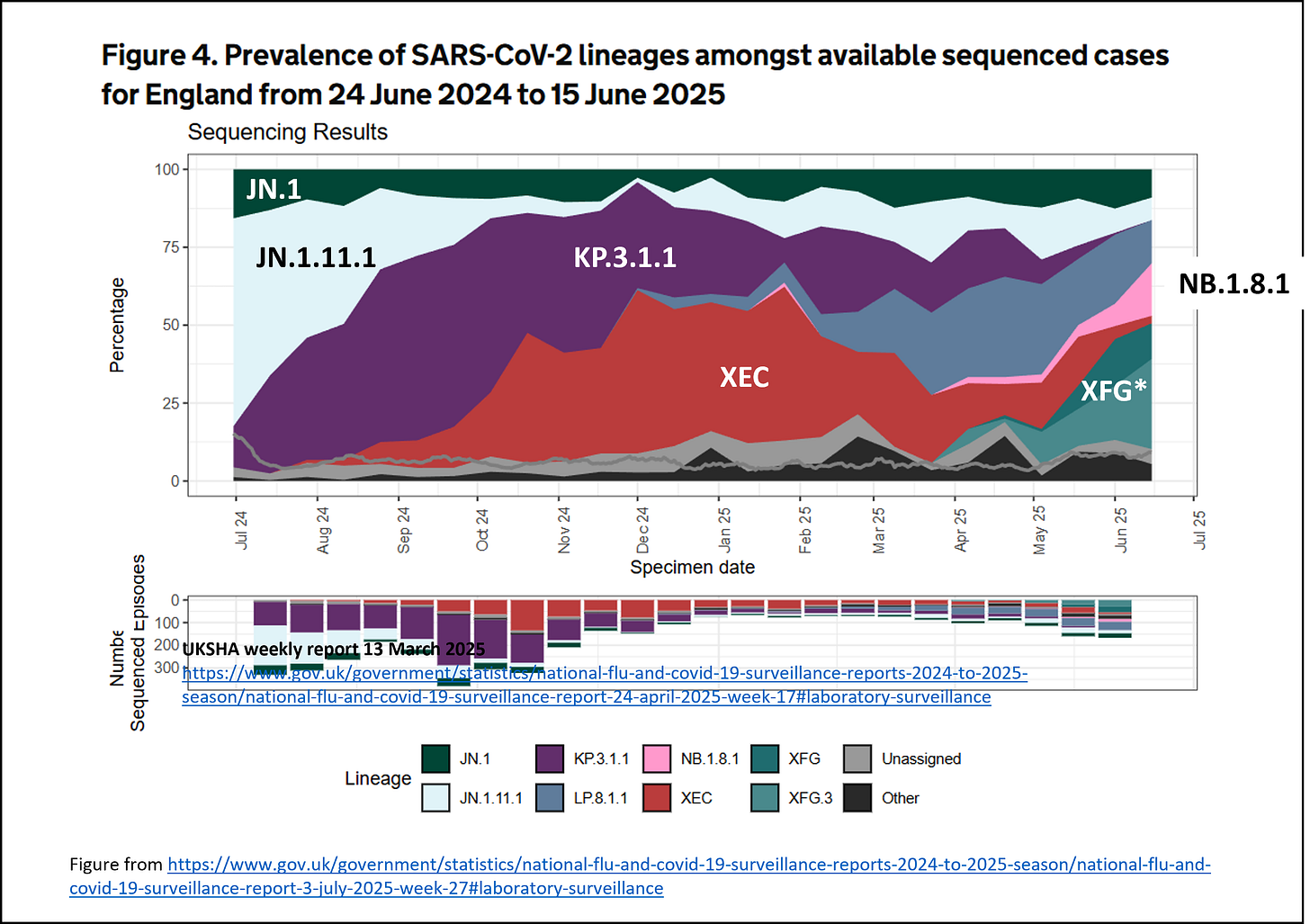Covid update in England - new variants are dominant but are NOT causing a wave
Covid levels remain thankfully low in England
Towards the end of May, I wrote a substack about two emerging variants NB.1.8.1 and XFG. NB.1.8.1 was causing waves in Singaport, Hong Kong, Taiwan and Australia, while XFG was also showing strong growth in some regions. At the time, Covid hospitalisations in England and wastewater monitoring in Scotland had shown stable and low levels for six months (since November 2024) - our longest stable and low period since the start of the pandemic.
I thought that it was reasonably likely that one or both of these variants would cause a summer wave here, although I said I wasn’t particularly worried about either in terms of their potential to cause higher levels of severe illness. Two months later, and these variants are now the most common variants across the world (in different ratios in different countries), including the UK. They likely reached dominance in England around mid June (e.g. see the last variant chart from UKHSA below - note that sample numbers are tiny towards the end, but the picture is consistent with global patterns).
However, whether because it’s been a hot summer plus enough existing immunity in the population, or something else, they just haven’t caused a big wave of infections here. Wastewater monitoring in Scotland shows a small bump in the last month, but that is declining already - compared to the whopper of a wave we had a year ago, this really is not very significant. Remember that wastewater testing does not depend on test seeking behaviour or symptoms, so is the best guide we have to scale and trend of infection in the community.
Even better, the impact of these variants on recorded hospitalisations in England has been negligible, and numbers have fallen in the most recent week of data. (NOTE: monitoring of hospital admissions for RSV and Flu has ended for the season).
This is good news, helped along by the fact that these variants arrived not too long after the Spring vaccine booster campaign which provided extra protection to many elderly or otherwise clinically vulnerable people (although not as many as we’d like to see boosted every year).
We should be glad about this - as far as I’m concerned, the longer we go without a large Covid wave, the better. It doesn’t mean that no one is getting Covid - it’s there in the background and doesn’t almost disappear in the summer like Flu and RSV. It also doesn’t mean that there won’t be another big Covid wave in the future. But at the moment, things are calm on the Covid Front and long may they stay that way.
PS for a far more detailed look at Covid data, please do check out Bob Hawkins’ weekly substack.







There are many vulnerable people like me in the UK that find your information essential to help decide how we interact with the population.
Thank you is not a big enough word! (I typed it as one word but phone insists it’s two)
Thank you! Do you have data on Long Covid trends in the UK ?
Increasingly, Long Covid (PASC, or Post acute sequelae of covid-19), is turning out to be of greater recent impact on health than the acute phase of covid, and long covid does not seem to correlate to the severity of the acute infection.
For that reason, as well as the sometimes impact of acute infection on those who are medically vulnerable, I always greet this admittedly excellent news with the caveat that the virus is still out there, and still causing grave illness to some.
Thank you again for the clarity and precision of your post.